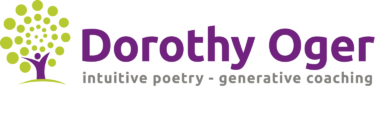If you are wondering what my "why" is, have a look at this poem. I…
Who says that efficiency is not fun?
Do you believe that you will lose creativity and freedom if you become organised?

A recent participant to one of my Time Management programme thought so.
As she was learning about best practices to become more effective, she began to realise that – perhaps – she did not want to become more effective! Therefore she doubted that she would have any success with the practices. Earlier on, someone else had put a crucial question forward : “How to maintain this new discipline and not relapse into old habits?”.
You cannot discipline yourself without discipline.
We often say that a person requires a minimum of 21 days of practice in order to integrate a new habit into their life. I know from personal experience that it may not be sufficient to maintain this in the long run, even though you eventually get there if you continue to put back your attention on the “new” habits.
I ask myself three major questions in order to predict the success of such a change:
- What is my state of mind in acquiring this new habit? Am I approaching this with a curious, open, positive state of mind or am I resisting the change? Am I allowing myself to focus positively on the change or am I distracting myself from it?
- What do I believe about acquiring this new habit? Do I think it is possible for me to change this? Do I believe it is wrong? Or that I do not deserve to make this change?
- Do I know how to do this new thing? Do I have the skills and knowledge required? Do I apply the strategies that will make this happen?
With this group, I knew they had the strategies. After all that’s what they had been learning with me. I also knew that their state of mind was an open and positive one. So, in order to uncover some of their (limiting) beliefs, I asked my participants to write down everything that came to their mind in relation to the following two questions:
a) What would be the benefits of not becoming more effective?
b) What would be the benefits of becoming more effective?
There was a really nice shift in the group after this exercise. In particular, the lady noticed that what was preventing her from applying time management principles was the idea that she would lose in freedom and creativity. But then, she also noticed that becoming more effective would actually be supportive of her being free and creative. Because the structure she would put in place would allow her to reach a high quality state of mind which she could use for fun, interesting and rewarding things! Becoming aware of this generated a much higher degree of commitment and, even, of hope.

Picture by Dorothy Oger
There is no yin without yang
I believe that structure, rules, order, efficiency and all those “boring” left hemisphere types of activities are actually promoting the organic, creative, intuitive functions of the brain. And the other way around too, one needs a little chaos, flexibility and spontaneity where there is efficiency. This is how our world functions.
